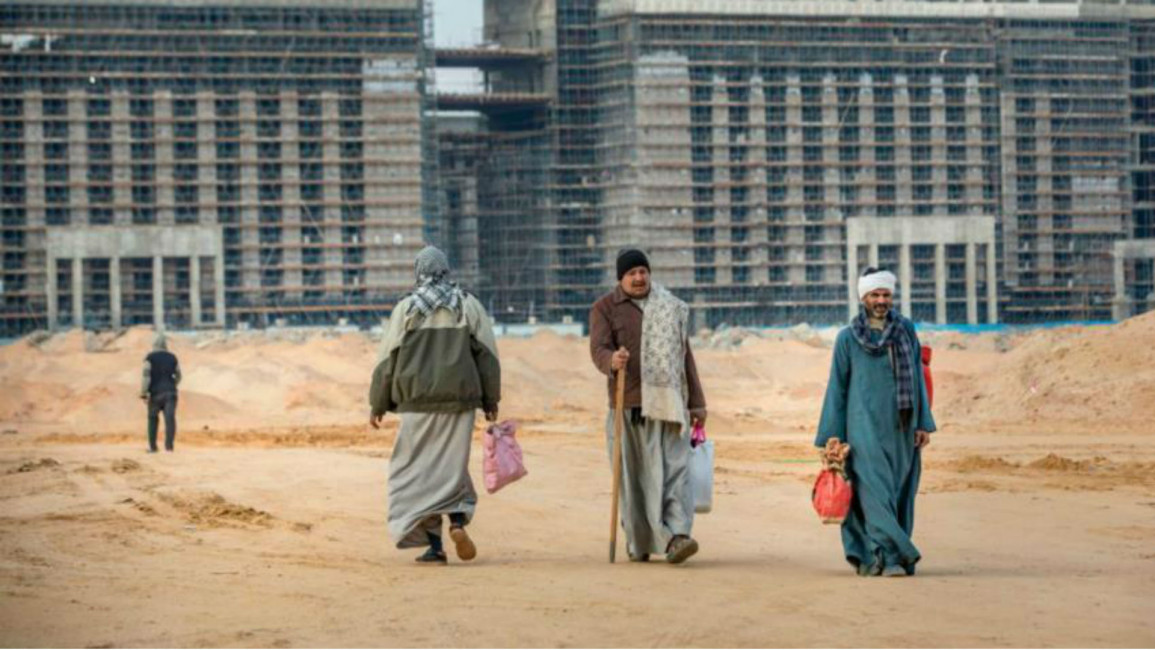Egypt postpones new administrative capital move, launch of landmark projects over coronavirus
Sisi also postponed the launch of other supposedly landmark projects, including the Grand Egyptian Museum and the National Museum of Egyptian Civilization to next year, according to a presidential statement.
The decision was "due to the circumstances and repercussions of the process of combating the spread of the new coronavirus either at the national level or globally," it said.
Postponing the move of government workers to the new capital, dubbed Sisi-City, is a blow to what was touted a flagship project for the president, despite the fact that it had already faced significant delays.
Sisi's government planned to run Egypt from the new city as soon as the middle of 2020 in a bid to take the heat off the overcrowded, polluted Cairo. But the $58 billion project struggled to raise funds and faced other challenges after some investors pulled out.
Read also: Can Sisi ride out coronavirus and Egypt's crippled economy
Twitter Post
|
Before the announcement, one employee involved with projects at the new capital said some companies working there had partly suspended work at the site and that other workers were being asked to stay at home on half wages amid measures to prevent the spread of the new coronavirus.
Announced at an economic conference in 2015, the new desert city will supposedly replace Cairo, the existing capital on the Nile that has become a traffic-clogged, urban sprawl of more than 20 million people.
In other developments, the Egyptian Coptic church, which last month ordered the closure of churches nationwide to stem the spread of Covid-19, decided on Thursday to suspend prayers preceding Easter celebrations, during a meeting chaired by Pope Tawadros II.
Twitter Post
|
"Prayers, including Holy Week services, which are considered the most important rituals in the Coptic Orthodox church, will be suspended" until the pandemic is contained, a statement posted on Facebook said.
Holy Week prayers precede Easter Sunday, which this year will be celebrated on April 19 by the Orthodox community, one week later than the Catholic Easter.
Church spokesman Boulos Halim said these were "unprecedented and historic" measures implemented to stem the crisis.
Coptic Christians are the largest non-Muslim religious minority in the Middle East and account for 10-15 percent of Egypt's predominantly Sunni Muslim population of 100 million.
Egypt so far has recorded 71 deaths out of 1,070 confirmed cases of the novel coronavirus.
Authorities have imposed tough measures to limit social interaction in the Arab world's most populous country, including a night-time curfew that went into effect last week.
Those violating the measures could face fines of up to 4,000 Egyptian pounds ($250) and jail sentences.
Authorities have also closed schools and universities, while air traffic has been halted until April 15.
Read also: Hundreds of Egypt's medical workers apply for US visa


![President Pezeshkian has denounced Israel's attacks on Lebanon [Getty]](/sites/default/files/styles/image_684x385/public/2173482924.jpeg?h=a5f2f23a&itok=q3evVtko)



 Follow the Middle East's top stories in English at The New Arab on Google News
Follow the Middle East's top stories in English at The New Arab on Google News


